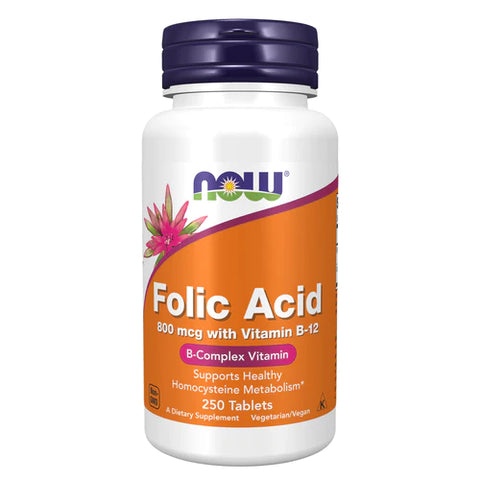영아는 적절한 성장과 발달에 필요한 모든 영양소를 섭취하기 위해 비타민이 필요합니다. 모유는 일반적으로 대부분의 좋은 공급원입니다. 비타민과 미네랄 영아는 필요하지만 경우에 따라 비타민 보충제가 필요할 수 있습니다.
모유는 영아에게 가장 좋은 영양 공급원이며 영아가 생후 첫 6 개월 동안 필요한 모든 필수 영양소를 제공합니다. 그러나 6 개월이 지나면 고체 식품을 먹기 시작하면 필요한 필수 비타민과 미네랄을 모두 얻지 못할 수도 있습니다. 일부 영아는 조산아, 특정 의학적 상태가 있거나 특정 선천적 결함으로 태어나는 영아와 같은 추가 비타민 또는 미네랄 요구가있을 수 있습니다.
일부 유아는 또한 필요할 수 있습니다 비타민 D 보충제, 적절한 뼈 발달을 위해서는 비타민 D가 필요합니다. 비타민 D는 햇빛 노출을 통해 얻을 수 있지만, 생애 초기에는 아기가 충분한 햇빛을 얻는 것이 어려울 수 있으며, 이로 인해 보충이 필요할 수 있습니다.
개인화 된 권장 사항을 위해 소아과 의사와 상담하는 것이 항상 가장 좋습니다. 비타민 및 미네랄 보충 당신의 아기를 위해. 그들은 아기의 특정 요구를 평가하고 비타민 보충제가 필요한지 또는 아기가 필요한 영양소를 섭취 할 수있는 대안이 있는지 여부를 결정할 수 있습니다.
영아에게 가장 권장되는 비타민
영아가 올바른 영양을 섭취하는 것이 중요하며, 비타민은 필요한 모든 영양소를 얻는 데 도움이 될 수 있습니다. 영아에게 가장 중요한 비타민 중 일부는 다음과 같습니다.
- 비타민 d: 이 비타민은 뼈와 치아의 적절한 발달에 필수적입니다. 모유 수유를 한 영아는식이 요법에서 충분한 비타민 D를 얻지 못할 수 있으므로 보충제가 필요할 수 있습니다.
- 비타민 k: 이 비타민은 혈액을 응고하는 데 도움이되며 과도한 출혈을 예방하는 데 필수적입니다. 영아는 보통 출생시 단일 복용량의 비타민 K가 제공됩니다.
- 비타민 A : 이 비타민은 시력과 면역계에 중요합니다. 모유, 유아 공식 및 일부 이유식에서 찾을 수 있습니다.
- 비타민 C: 이 비타민은 면역 체계를 향상시키는 데 도움이되며 건강한 뼈와 치아의 발달에 중요합니다. 유아는 모유 나 유아식 공식 또는 과일과 채소에서 비타민 C를 섭취해야합니다.
- 비타민 B : 비타민 B6 및 B12를 포함한 복잡한 비타민은 건강한 신진 대사 및 성장에 중요합니다.
- 엽산 : 이 비타민은 신경계의 발달에 중요합니다. 엽산이 충분하지 않은 영아는 신경관 결함에 위험에 처할 수 있습니다.
권장 제품 :
- 철: 철은 적혈구 형성과 신체 전체의 산소 수송에 필수적입니다. 유아는 철분 결핍 빈혈의 위험이 있으므로 철 보충제가 필요할 수 있습니다.
- 칼슘: 칼슘은 강한 뼈와 치아의 형성 및 유지에 필수적입니다. 유아는 모유, 조제 또는 요거트와 치즈와 같은 음식에서 칼슘을 섭취 할 수 있습니다.
- 오메가 -3 지방산: 이 필수 지방산은 뇌 발달과 신경계의 형성에 중요합니다. DHA (docosahexaenoic acid)는 영아에게 가장 중요한 오메가 -3 지방산입니다.
영아를위한 아연을 곁들인 종합 비타민
일반적으로 영아는 보충제가 아닌 모유 나 공식에서 필수 비타민과 미네랄의 대부분을 얻는 것이 좋습니다. 그러나 경우에 따라 의료 전문가는 멀티 비타민 유아용 아연.
권장 제품 :
아연 영아의 성장과 발달에 중요한 역할을하는 필수 광물입니다. 그것은 면역 체계를 지원하는 데 도움이되며 탄수화물의 신진 대사에 필요합니다. 단백질및 핵산. 아연은 또한 뇌와 신경계의 발달에 중요합니다.
아연 결핍 위험이있는 영아에는 조기에 태어나거나 출생 체중이 적거나 흡수 장애와 같은 특정 의학적 상태가 포함될 수 있습니다.
유아에게 모든 종류의 의료 전문가와 상담하는 것이 중요합니다. 보충, 그들이 필요한지 여부를 결정할 수 있고 적절한 복용량을 추천 할 수 있습니다. 너무 많은 아연이 유해 할 수 있으며 위 화나기, 설사 및 구토와 같은 부작용을 유발할 수 있습니다.
영아를위한 종합 비타민 제품은 특별히 제조되며 영아에게는 성인 제품을 사용하지 않는 것이 중요합니다. 영아는 영양 요구 사항이 다르고 내성 수준이 다르기 때문에 소아 제품은 이러한 요구를 염두에두고 구체적으로 만들어집니다.


